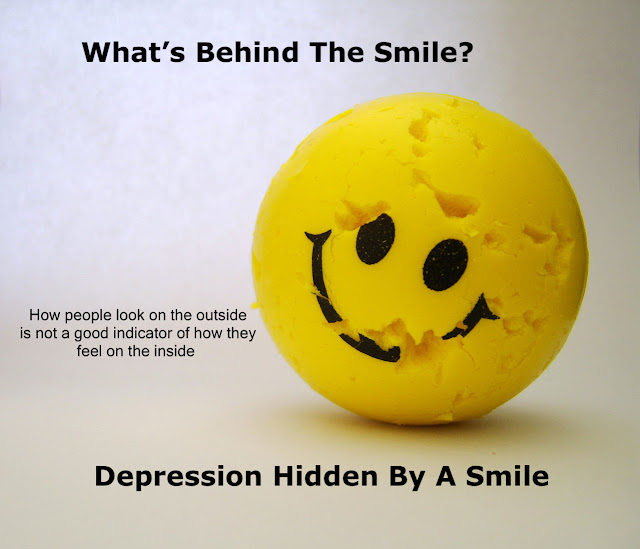Depression Hidden By A Smile
The term Smiling Depression has become more common over the last few years and refers to the way many people can have low mood while still functioning day-to-day.
Often they are so successful that friends, family and work colleagues would be surprised to know how they were feeling behind the smile.
Typically a client will explain how they have learned to put up a front of being okay because that’s what everyone expects from them. They go through the motions of playing along with the ‘role’ they have learned to play which hides the truth that their low mood is more persistent than many would believe.
When we think of famous people like Robin Williams it is clear that he was smiling through his depression, playing the comedy role the world loved him for. What does this tell us?
How people look on the outside is not a good indicator of how they feel on the inside.
Low mood and mild depression are not just feeling sad, it can be an absence of emotion. Often we refer to a flattening of a person’s mood where the activities they once would have found enjoyable, now hold little interest for them.
Other times there can be periods of anxiety, the pressure of holding onto the smile becomes too much. Let’s not forget that it takes a lot of mental effort to maintain the front that everything is okay.
The increased mental effort (sometimes referred to as mental labour) is going to put greater pressure on the person’s ability to cope with other aspects of their life.
It can be difficult for a person who has hidden their depression behind a smile to accept help. They are used to managing, functioning and just getting on with things, but in fact, it is far from a weakness to ask for help it is a strength.
“I’m fine!”, they say. “I’m just tired, I’ll have a quiet weekend and get some sleep. I’m sure I’m just run down”. This might be the case, but it is also worth remembering that being tired and run down can be a symptom of that mental labour, a burnout from holding at bay the depression behind that smile.
Like with many problems the sooner help is introduced the sooner their mood can be lifted and help can be given to prevent the same problem from occurring again.
A chat with their doctor will allow them to get all the information about what can be done to help, and this is particularly important with the most severe cases where the ability to function day-to-day has been significantly reduced.
For those that feel the pressure of keeping that smile on their face, Hypnotherapy, in particular, Hypnoanalysis can help.
Hypnoanalysis: Getting to Root Cause Smiling Depression
Hypnoanalysis is a type of analytical therapy that works through and resolves the emotional build-up which causes low mood and depression. The therapy works under the principle of cause and effect. For every effect there has to be a cause; a reason why this person suffers in the way they do.Rather than managing symptoms, the aim is to remove the psychological cause of depression and a low mood. By enabling past events to be re-examined and the emotion released, those patterns of behaviour which are no longer appropriate, the symptoms, cease.
Imagine being able to do without management strategies to control your mood because it no longer exists, without the possibility of symptom substitution.The process does not have to be a long-drawn-out process either. Most people can complete their therapy within 6 to 8 sessions.
There is no reason to put up with a low mood and depression that is negatively impacting your life.
Imagine what your life would be like if you were free from the doubts and worries which have been an obstacle for so long.




Comments
Post a Comment